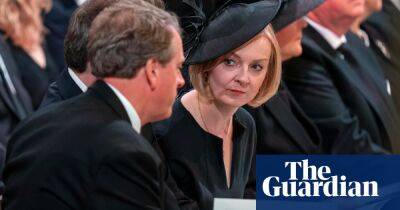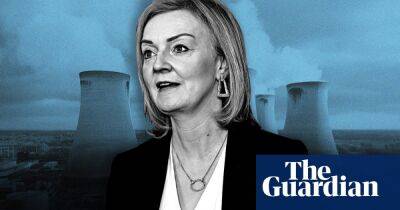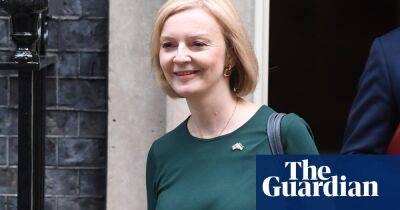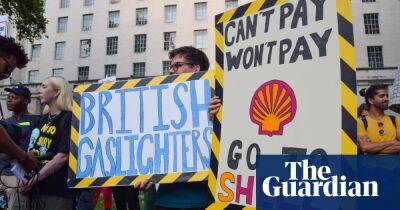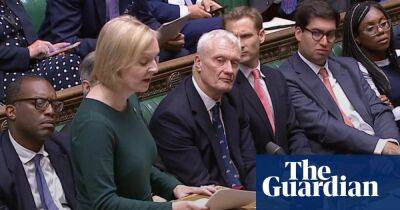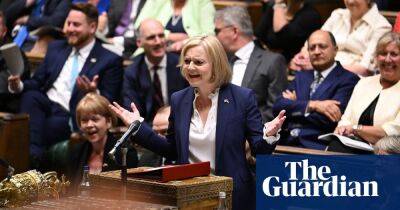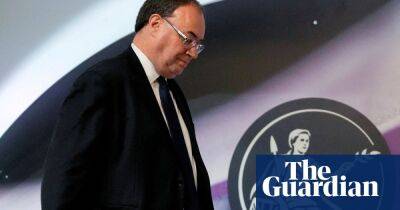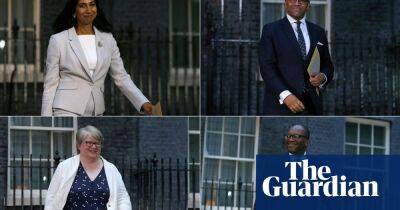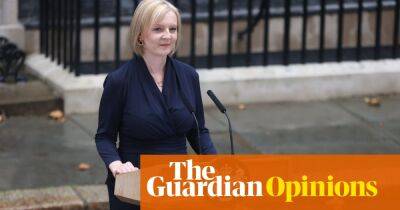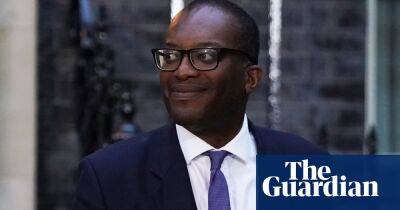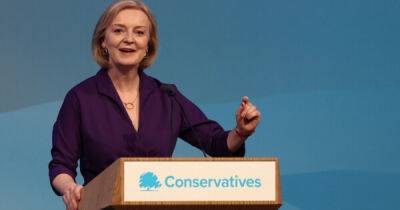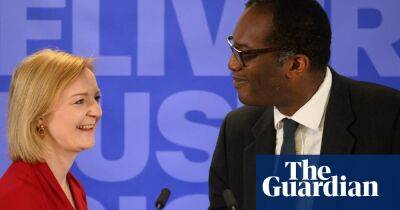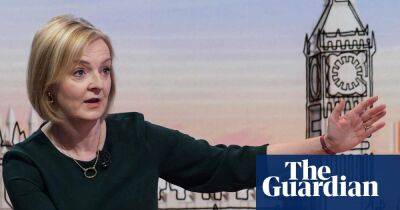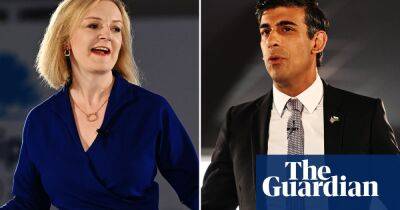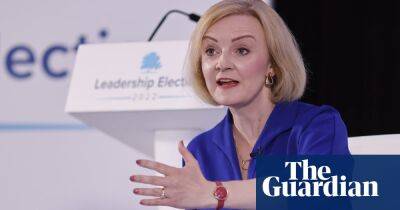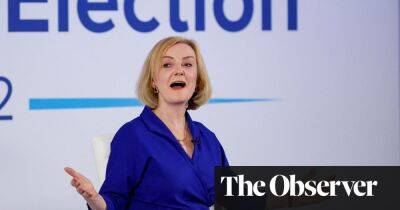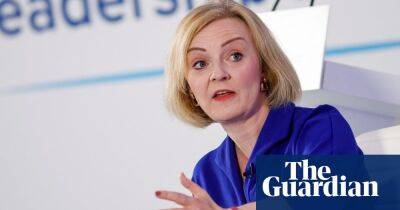The UK is at a perilous tipping point. But what is Truss planning to do about it?
The gigantic scale of the oncoming economic shock becomes clearer by the hour. Click – and there’s Goldman Sachs predicting a 22% inflation rise next year. Click again and Bloomberg reports UK energy companies will make £170bn in excess profits over the next two years. If interest rates do hit 4%, banks too will roll in unearned mortgage money, plus shedloads from money loaned to the government. Fine profits will be made from national misery.
Each day dawning reveals how everything, everywhere, is at a perilous tipping point. Martin Lewis warns that lives will be lost from cold and hunger, amplified by Sir Michael Marmot’s warning yesterday of children in grave peril. Lewis is not “catastrophising”, he says: “This is a catastrophe, plain and simple unaffordable.” If only he were to be the new chancellor … carry on with your own Jack Monroe-and-Marcus Rashford dream team.
But next week we face the appointment of a leader with nothing to say that acknowledges the enormity of the calamity ahead, whose defining policy of tax cuts is the perverse opposite of what’s required. In the great crunch of 2008, Gordon Brown and Alistair Darling staved off imminent calamity with policies that had been unimaginable to them only a day earlier: nationalising banks, bailouts and a quantitative easing bonanza. Is anyone confident that Liz Truss and Kwasi Kwarteng will plan on anything like the scale required?
Rishi Sunak pitching to Tory party members in leafy Hertfordshire this week faced not one question – not a single one – concerning the cost of living crisis. From this twilight zone of unreality emerges a leader unfit to grapple with the worst crisis of our lifetime, with a typical 10% fall in disposable income predicted by 2024,
Read more on theguardian.com
